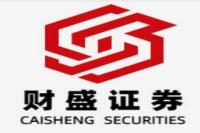Boosting China's Consumption: A Deep Dive into the "Double 11" Stimulus and Beyond
Meta Description: China's Double 11 shopping festival, consumer stimulus policies, e-commerce, renewable energy vehicle sales, China International Consumption Centers, and boosting domestic consumption.
This isn't just another article about China's economic strategy; it's a behind-the-scenes look at the intricate mechanisms driving the nation's consumption engine, fueled by innovative policies and the relentless energy of Double 11. Imagine a meticulously orchestrated symphony, where the conductor is the Ministry of Commerce (MOFCOM), and the instruments are everything from electric vehicle (EV) incentives to online shopping extravaganzas. This is the story of how China is leveraging its technological prowess, its vast e-commerce infrastructure, and the sheer purchasing power of its citizens to achieve remarkable economic goals. We'll dissect the latest initiatives announced by MOFCOM spokesperson He Yadong, exploring the nuanced strategies behind initiatives like the "trade-in" program for consumer goods, the ambitious "New Energy Vehicle Consumption Season," and the spectacular "China International Consumption Center Cities Boutique Consumption Month." Prepare to be amazed by the scale and scope of these projects, the ingenuity behind their execution, and the potential impact on the global economy. You'll gain insights into the critical role of e-commerce platforms, the complexities of coordinating nationwide campaigns, and the overall vision to transform China into a global consumption powerhouse. We'll explore the challenges faced, the successes achieved, and the future trajectory of this ambitious economic strategy. This isn't just about numbers and policy; it's about understanding the human element – the consumers, the businesses, and the policy makers working together to shape China's economic future. Get ready for a deep dive into the heart of China's consumption strategy—a fascinating blend of innovative policies, technological advancements, and sheer entrepreneurial spirit.
China's New Energy Vehicle (NEV) Push: A Key Driver of Consumption
The recent announcements by the Ministry of Commerce (MOFCOM) underscore a significant emphasis on boosting consumption, with a clear focus on specific sectors. One area receiving considerable attention is the promotion of New Energy Vehicles (NEVs). The "Double 11" shopping festival, a cornerstone of China's e-commerce landscape, isn't just about discounted electronics; it's becoming a crucial launchpad for nationwide campaigns like the "New Energy Vehicle Consumption Season." This isn't just about selling cars; it's about driving a fundamental shift towards sustainable transportation and bolstering domestic industries.
The strategic timing of this initiative is noteworthy. By leveraging the massive online reach of Double 11, MOFCOM aims to connect suppliers with consumers on an unprecedented scale. This strategic alignment of policy and a pre-existing consumer event demonstrates the innovative approach being adopted to stimulate economic growth. The success of this initiative hinges on several factors, including the availability of affordable NEVs, government incentives, and the overall consumer confidence in this burgeoning sector.
The government's commitment to supporting NEV sales goes beyond simply creating promotional events. Significant investments in charging infrastructure, technological advancements in battery technology, and ongoing research and development contribute to a holistic ecosystem that fosters the growth of the NEV market. This demonstrates a long-term vision that transcends short-term economic gains.
The "Trade-in" Program: Stimulating Sustainable Consumption
Another significant initiative highlighted by MOFCOM is the expansion of the "trade-in" program for consumer goods. This policy, designed to encourage consumers to upgrade their existing appliances and electronics, cleverly addresses several economic objectives simultaneously. First, it stimulates demand for new products, benefiting manufacturers and retailers. Second, it promotes sustainable practices by reducing electronic waste. Third, it injects much-needed capital back into the consumer market, creating a virtuous cycle of spending and investment.
This isn't a simple "buy-back" scheme; it's a carefully calibrated policy designed to create economic ripple effects. The involvement of e-commerce platforms is critical to its success. These platforms not only facilitate the trade-in process but also provide valuable data insights that inform future policy decisions. The integration of technology and policy is a defining characteristic of China's approach to economic stimulation.
The "China International Consumption Center Cities Boutique Consumption Month" – A Multi-pronged Approach
The upcoming "China International Consumption Center Cities Boutique Consumption Month" in November represents a bold and innovative step to reinvigorate consumer spending. The "1+4+N" format, with its focus on "one boutique launch season" and four key areas (shopping, dining, tourism, and performing arts), is designed to create a multi-faceted experience that caters to diverse consumer preferences. This is not just about discounts; it's about creating a vibrant and engaging consumer experience that encourages spending across multiple sectors. The selection of Shanghai, Beijing, Guangzhou, Tianjin, and Chongqing as the host cities underscores the importance of leveraging major urban centers to maximize the impact of this initiative. The event's success will depend heavily on effectively coordinating efforts across multiple stakeholders, including local governments, businesses, and e-commerce platforms.
The Role of E-commerce Platforms: The Backbone of Consumption Stimulation
It's impossible to discuss China's consumption strategy without acknowledging the pivotal role played by e-commerce platforms. These platforms are more than just online marketplaces; they're the arteries that connect consumers with businesses, facilitating the flow of goods and services at an unprecedented scale. Their participation in initiatives like the "trade-in" program and the "New Energy Vehicle Consumption Season" is not merely incidental; it's essential to the success of these campaigns. The sheer volume of transactions processed by these platforms provides valuable data insights that inform policy decisions, enabling the government to fine-tune initiatives based on real-time market dynamics. This synergy between government policy and the technological capabilities of e-commerce platforms is a powerful engine of economic growth.
Frequently Asked Questions (FAQs)
Q: How effective have these consumption stimulus policies been so far?
A: Determining the immediate effectiveness requires detailed economic analysis, considering various factors like overall economic conditions and global market trends. However, the sheer scale of these initiatives, coupled with the active participation of major e-commerce players, suggests a significant potential for positive impact. Long-term effectiveness will require continued monitoring and evaluation.
Q: What are the potential challenges in implementing these policies?
A: Challenges include coordinating efforts across various levels of government and ensuring consistent implementation across different regions. Ensuring the equitable distribution of benefits and preventing potential market distortions are also key considerations. Maintaining consumer confidence and addressing any potential supply chain issues is also crucial.
Q: How does this strategy differ from past approaches to consumption stimulation?
A: This strategy shows a move towards a more targeted and technologically-driven approach. Instead of relying solely on broad-based fiscal measures, the focus is on leveraging e-commerce platforms, technological advancements, and specific sectorial initiatives to stimulate growth.
Q: What is the long-term vision behind these policies?
A: The long-term goal is to establish China as a global leader in consumption, fostering sustainable economic growth driven by domestic demand and innovation. This includes a shift towards higher-value consumption, sustainable practices, and the development of a robust domestic market.
Q: What role does sustainability play in these initiatives?
A: Sustainability is increasingly central to China's economic strategy. The emphasis on NEVs and the "trade-in" program reflect a broader commitment to environmental protection and resource efficiency.
Q: How does the government ensure the success of these campaigns?
A: Success relies on close collaboration between government agencies, businesses, and e-commerce platforms. Regular monitoring, evaluation, and data-driven adjustments are crucial for refining and improving the effectiveness of these initiatives.
Conclusion
China's multifaceted approach to boosting consumption, highlighted by the recent announcements by MOFCOM, represents a sophisticated and ambitious economic strategy. The innovative use of e-commerce platforms, the strategic timing of campaigns like the "Double 11" initiatives, and the comprehensive nature of programs such as the "China International Consumption Center Cities Boutique Consumption Month" show a forward-thinking and technologically driven approach to tackling economic challenges. The long-term success of these policies will depend on effective coordination, consistent implementation, and the ability to adapt to evolving economic conditions. However, the scale, ambition, and innovative nature of these initiatives suggest a strong potential for positive impact on China's economic landscape and its global standing. The future of China's consumption-driven growth story is one worth watching closely.



